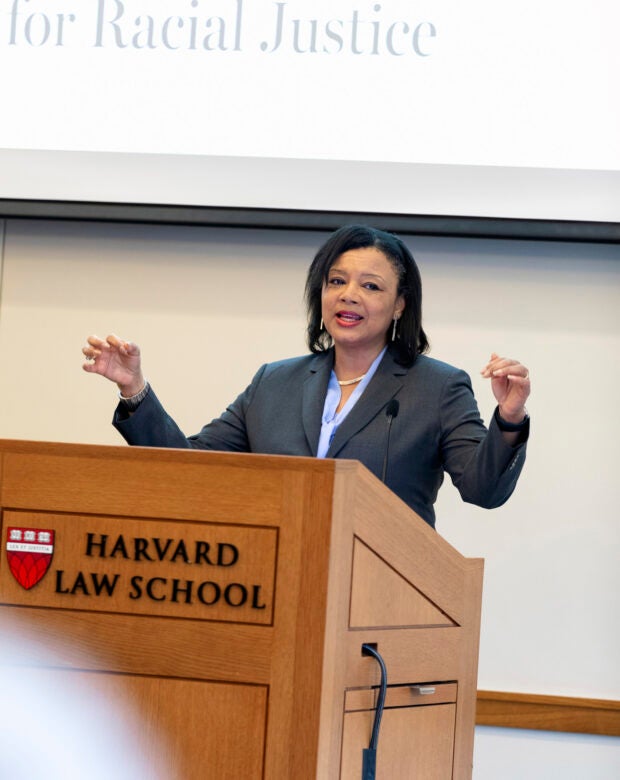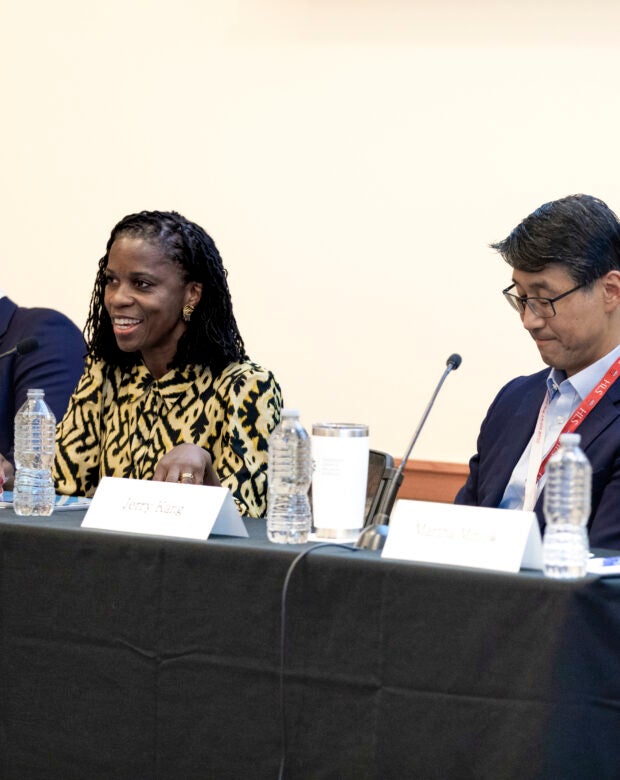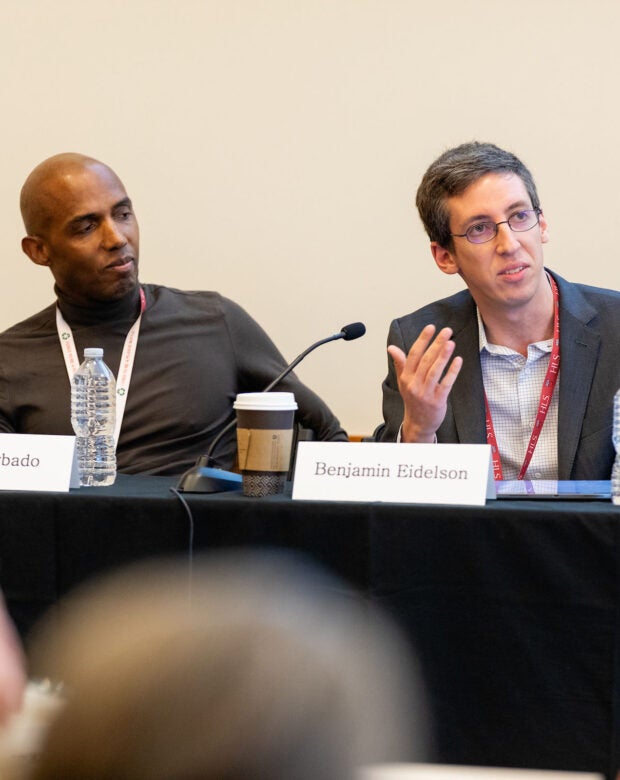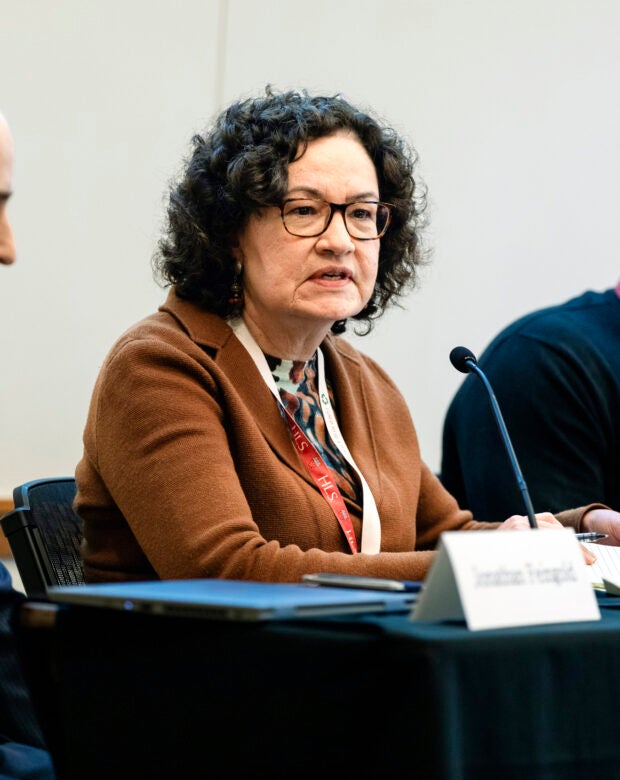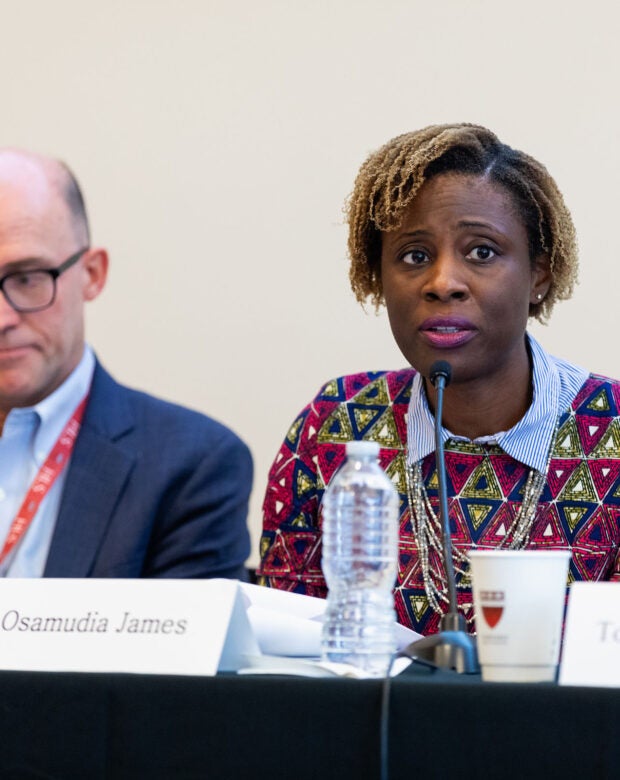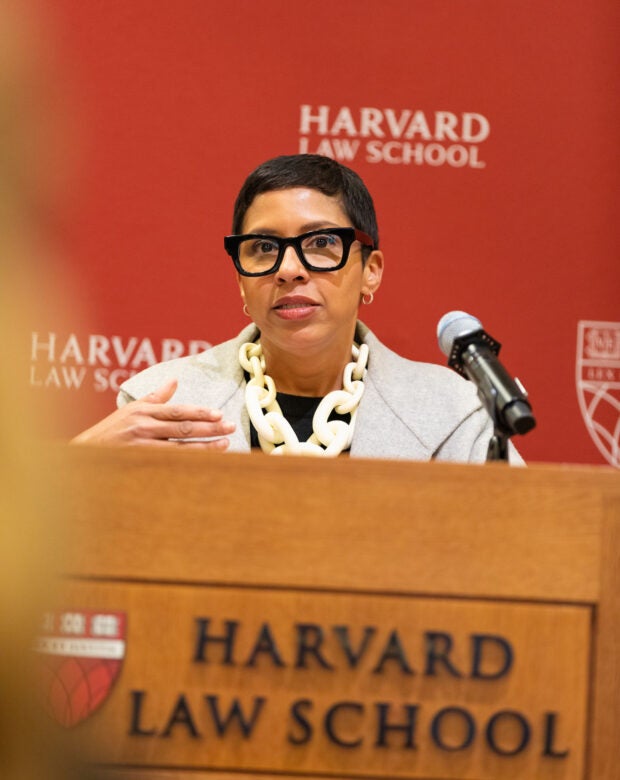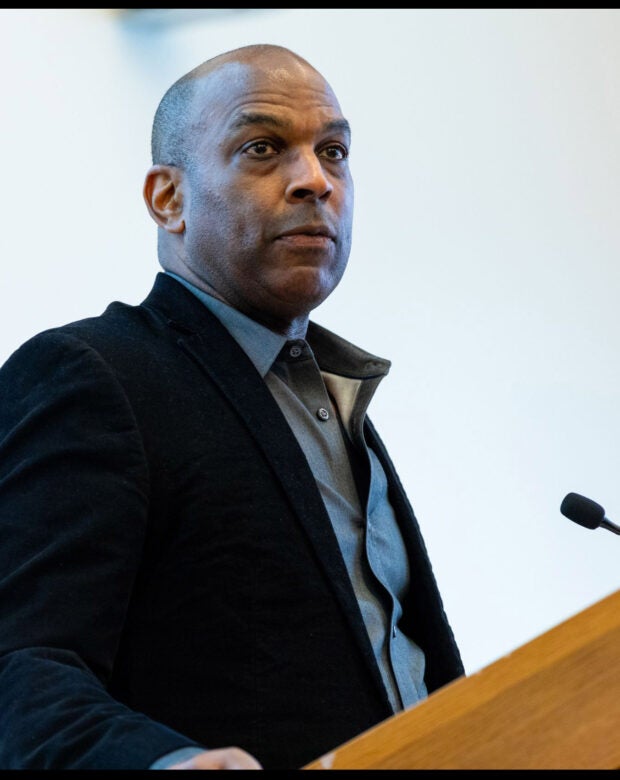Inaugural Belinda Sutton Symposium
Although the United States Supreme Court’s 1954 decision in Brown v. Board of Education has often been considered “the greatest case in 20th-century constitutional law,” legal historian and constitutional law expert Tomiko Brown-Nagin recently pronounced herself as “conflicted about these claims.”
“Why?” asked Brown-Nagin, dean of the Radcliffe Institute for Advanced Study and Daniel P.S. Paul Professor of Constitutional Law at Harvard Law School. “Because I’m afraid that the rhetorical significance we attach to Brown is overstated — a partial truth at best, and a way of convincing ourselves that we are better than the evidence shows we actually are regarding matters of race and inequality.”
Her comments came during a daylong series of discussions and presentations at Harvard Law School titled “Charting the Aftermath of Equality: Brown, SFFA & the Continuing Struggle for Racial Justice.” The April 11 gathering marked the inaugural Belinda Sutton Symposium, an annual lecture and conference series honoring Belinda Sutton, a woman who was enslaved by Isaac Royall Jr., whose 1781 bequest to Harvard College funded a professorship that helped to establish Harvard Law in 1817.
Established by Dean John F. Manning ’85 in 2022, the series is organized by Guy-Uriel E. Charles, the Charles J. Ogletree Jr. Professor of Law and faculty director of the Charles Hamilton Houston Institute for Race and Justice.
In his welcoming remarks, interim Harvard Law Dean John C.P. Goldberg paid tribute to Sutton’s perseverance. After having labored in servitude for Royall for 50 years, she launched a historic series of petitions with the Massachusetts General Court to claim a pension from his estate. Although remarkably she convinced the Legislature to grant her a lifetime annuity, only one payment was made. “Belinda Sutton’s eloquent appeals for a small measure of recompense,” said Goldberg, “served as a testament to her noble fight against oppression and her dignity, and to the fortitude of human spirit in the face of terrible adversity and grotesque injustices.”
The event was also dedicated to the memory of Charles J. Ogletree Jr. ’78, who passed away last year. “Professor Ogletree’s hugely important and influential work as an educator and mentor to generations of students, his establishment of the [Charles Hamilton Houston] Institute, and his active participation in litigation and public debates over issues of racial justice are an inspiration to anyone concerned with the challenges we face in moving toward justice and equity,” Goldberg said.
Highlights from the symposium
